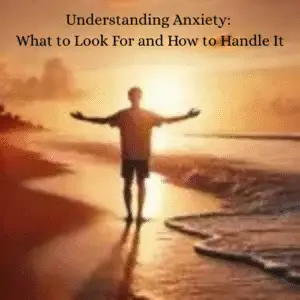Family therapy is a form of counseling that helps families work through their problems. It can be beneficial for families who are dealing with a wide range of issues, including conflict, mental health problems, addiction, and more. It can help families communicate better, understand each other’s perspectives, and develop healthier patterns of behavior.
What is family therapy?
Family therapy is a type of therapy that focuses on the relationships between family members and on the family unit as a whole. It can help families to improve communication, resolve conflict, and deal with other issues.
The different types of family therapy
There are different types, but the goal is always to help families improve communication and resolve conflicts.
One common type of family therapy is structural family therapy. This approach focuses on changing the family’s overall structure and how they interact with each other.
Another type is strategic family therapy. This approach focuses on changing specific patterns of interaction between family members that are causing problems.
Cognitive-behavioral family therapy is another popular approach. This type of therapy helps families identify and change negative thoughts and behaviors that are contributing to problems within the family.
No matter what type of family therapy you choose, the goal is to help your family improve communication, resolve conflict, and build stronger relationships.
Pros and cons of family therapy
There are many different types of therapy available to families, and each has its own set of pros and cons. Some common pros of this therapy include improved communication, increased emotional closeness, and greater insight into family dynamics. Cons of family therapy can include feeling exposed or vulnerable, reliving painful memories, and having to confront difficult truths about oneself or one’s family. Ultimately, the decision to seek out therapy is a personal one that should be made based on the specific needs of the family.
What to expect in family therapy
If you are considering family therapy, you may be wondering what to expect. It is a type of counseling that can help families work through challenges and improve communication.
During therapy sessions, a therapist will work with the entire family or just a few members, depending on the needs of the family. The therapist will help the family identify patterns of behavior and communication that are not working and explore new ways to interact with each other.
If you’re considering family therapy, it’s important to find a therapist that’s right for you. Here are some tips on how to find a family therapist:
Family therapy can be beneficial for families dealing with a wide variety of issues, such as divorce, parenting problems, substance abuse, mental health issues, and more. If you are interested in exploring family therapy, talk to your doctor or mental health professional to see if it is right for you.
How to find a family therapist
- Ask around. Talk to your friends, family, and doctor to see if they have any recommendations.
- Do your research. Once you’ve narrowed down your options, take some time to read up on each therapist. Look at their website, read reviews, and check out their credentials.
- Make sure you’re comfortable. When you meet with a potential therapist, pay attention to how you feel. Do you feel comfortable talking to them? Do they seem like they understand your situation?
- Trust your gut. Ultimately, you’ll need to decide whether or not a therapist is right for you. If something doesn’t feel right, trust your instincts and move on to someone else.
Alternatives to family therapy
If you’re looking for alternatives to family therapy, there are a few options available. One option is couple’s therapy, which can help improve communication and problem-solving skills within a relationship. Another option is individual therapy, which can help address personal issues that may be impacting your family life. Lastly, group therapy can provide support and guidance from others who may be experiencing similar challenges. Whatever route you decide to take, the important thing is to seek out help from a professional who can support you and your family through whatever challenges you may be facing.
Conclusion
It can be an incredibly valuable tool for families who are struggling with a variety of issues. By working with a trained therapist, families can learn how to communicate more effectively, resolve conflict in healthy ways, and support one another through life’s challenges. If you’re considering family therapy for your own family, we encourage you to reach out to a qualified therapist in your area to learn more.
At One Stop Psychiatry, our licensed therapists are here to guide your family toward deeper connection and lasting harmony. Ready to strengthen your family’s mental health? Contact us today to learn how we can support you
Address: 8910 Miramar Pkwy Office 309G, Miramar, FL 33025




